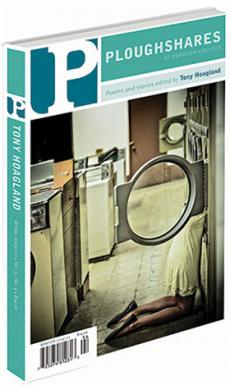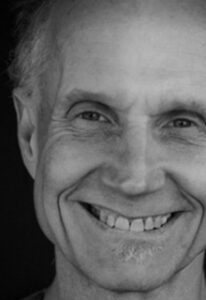Introduction
In northwestern Montana once, I met a person who changed my mind. This well-published and respected writer had moved to that frontier university town, to teach a four-four load, and to be, I suppose, left the hell alone. The English departments of frontier colleges (I once taught in such a place) are often staffed by drifters of a sort, persons who are too eccentric, too ungovernable, or too damaged to want to be in a more central place. Some are in flight from the crowds, and some are avoiding the sheriff. This writer, I think, was like that—she had chosen to be in a spot where she could make her own rules, and, more importantly, maybe, where she wouldn’t have to look daily at the vanity and mess of the American cultural center. A veteran of life, politics, and art, a Marxist-feminist, something of a sourpuss, a longtime cynic about men and their ways, disgusted with capitalism and the smugness of the shopper-citizens, and sick of the story of American race and poverty. All around us, noble mountains and big sky. Yet, spend a little time with her, and you could hear the hiss of stockpiled resentments rising from her like steam.
Over lunch, the lecture commenced. She regarded my fellow poet and myself, in town for a reading, as members of some east coast poetry cabal, ambassadors from the Rome of the mfa imperium, and she wanted to give us a piece of her mind. “Oh I know what you do”—she said; “you take young men and women, you strip them of their working class consciousness and their regional stories, and you teach them to write “poetry.” To her, we and our creative writing programs were ensuring that American poetry would stay cerebral, rootless, politically castrated, and aestheticized.
Another glass of white wine. The ash from her cigarette grew dangerously long. Somebody mentioned Rilke. “Yes,” she said, “you teach them Ashbery and Rilke,—Rilke!,” she said, and practically spat: “You can’t even approach Rilke until you go through Brecht !!” Her own students were writing poems about meatpacking factories and copper mines. Their unrhymed sonnets were full of index fingers severed by chicken-gutting knives, vfw Hall polka dances, and women weeping in beauty parlors.
That passionate woman, wagging her finger—I know I’m making her out to be a kook. Yet her tirade has stuck with me, and continued to resonate inside my head. Hers was the Social Realist position, the one that wishes art to represent the ignored, denied material world; the conditions which need improvement before we can allow ourselves to sit down for string quartets, or to try that new perfume, the one called Post Colonial Vacation.
And there’s a way in which she was quite right about Rilke, wasn’t she? He is the Ur-poet of the spiritual aesthete. He models a version of the poet as angel—someone who hands in his resignation, shrugs off the phony world, and rises into the ether of pure spirit. It is a pretty appealing blueprint for the dilettante, not to mention the adolescent hungry for absolutes.
I should know. When I was a twenty-year-old boy, alternately trying to meditate, or medicate, myself into Nirvana, Rilke was my Billy Graham. What pure ascetic intensity I had then. How little I wanted to be in a body at all! Rilke spoke with the spiritual aristocrat’s pity and contempt for ordinary human life, the withering recognition of human pettiness, self-deception, and empty striving. And he offered plenty of alternative advice.
One night in July of 1973, at a new age festival called the Gathering of the Tribes, I took a lot of mescaline in Utah’s Zion National Park. I stayed up half the night, listening to American Gypsies trade cosmic aphorisms around a campfire. The second half I spent alone, as I writhed through my crisis, tormented by demons, the sickness of identity. I watched dawn arrive on the strange terracotta geologic forms of southern Utah, determined to, as Rilke advised, change my life.
By morning I had changed my name and my plans. With nothing but a sleeping bag and pack, I climbed aboard an old school bus full of people who were following the fruit-picking season up through Utah, Idaho, and Washington State. For the next six months or so, I practiced a regimen which included avoiding my reflection, not combing my hair, keeping no “personal” money, renouncing sex. I wanted (poor boy!) to exterminate my vanity. I wanted to live inside a union of people, in a cooperative family of one kind or another. I wanted some relief from the first person singular. My new companions had names like Buckwheat, Laughing Oak, and Thirty Nine, plus a pudgy ten-year-old named Arthur whose mother had abandoned him with “the family” while she pursued some tantric crush. From the dumpsters behind supermarkets and Burger Kings, we foraged all the day-old food we needed. We stayed in migrant shacks on farms and orchards where we worked across the West and then the Northwest. We cooked on wood-stoves, picked cherries and apples alongside families from Oaxaca and Juarez, worked until a crop was done and then we moved to where more jobs had opened.
My memories are sketchy of that year (and of many others) but I do know that I was satisfied in some way that had to do with being simplified. And I know that, visiting many stripes of commune and collective, in the woods of Oregon and Washington, in Spokane and Seattle, listening to people more countercultural than me, I was utterly certain that a new world was coming. It seemed as clear to me as mist in a pasture at dawn, or a barn in a field. The solutions offered by these new age principles—cooperation, good will, shared resources, marijuana, and no more war—seemed so obvious. It was only a matter of time before the axis shifted. I was a believer.
Where am I going with this?
Let’s just say that my time among the transcendentalists made me fiercely suspicious of easy innocence. And my time among the realists has made me fiercely protective of our right to flight. Thus, the poems and stories gathered here in Ploughshares reflect these two broad bands of human temperament: the skeptical scrutiny and the rapturous updraft.
Let me characterize these two bandwidths in turn.
the skeptic: To me, the power of ruthless, intense scrutiny is one of the most thrilling modes of poetry. So this issue of the noble Ploughshares, (whose name derives from its own countercultural game plan,) is full of scrutinizers, varnish-strippers, biters and scratchers, tantrum throwers, Missouri mules, and writers of exposé. You will find here a high percentage of aggression and hooting. I don’t mean lite irony, which stands at a distance and comments, but I mean investigative linguistics, which tests and tastes like a merchant biting a coin in the middle of a transaction to see if it is counterfeit, or true. In a counterfeit culture, our honest work might be to make one real coin or two—good money, reliable money.
the arialists: In The Republic, it is the Greek poets known as rhapsodes whom Plato was most anxious about. For they have fits, and speak in tongues, and over-excite the citizens. Their passport is gusto and ingenuity. The other kind of work included in this anthology-of-the-moment practices exaltation of spirit—poems and prose in which the voice of the speaker rises upwards and outwards, often in wide spirals, gathering up armfuls of the world, manifesting the animal and spiritual joy of our capacity. In a capitalist culture, such poets are countercultural too, for they demonstrate how to play with no more equipment than language and imagination.
Our art is not divorced from the business of truth and justice. It can close with the world in culturally historically crucial ways. On the other hand the pursuit of the real can’t mean the extinction of joy, wonder, experiment, or irresponsibility. Not that they could be extinguished.
There’s a wonderful green exit sign on the highway near where I live. It says paine hollow / pleasure point. Apparently the neighborhoods are right next to each other.

